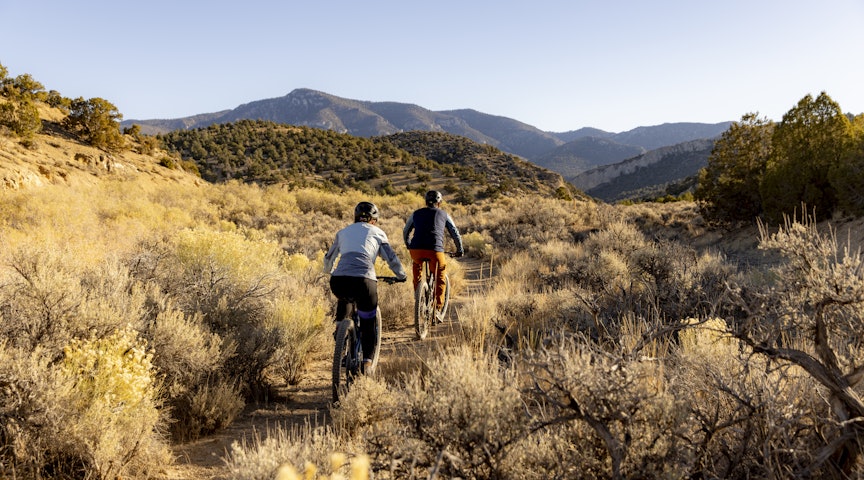
The 17 best things to do in California

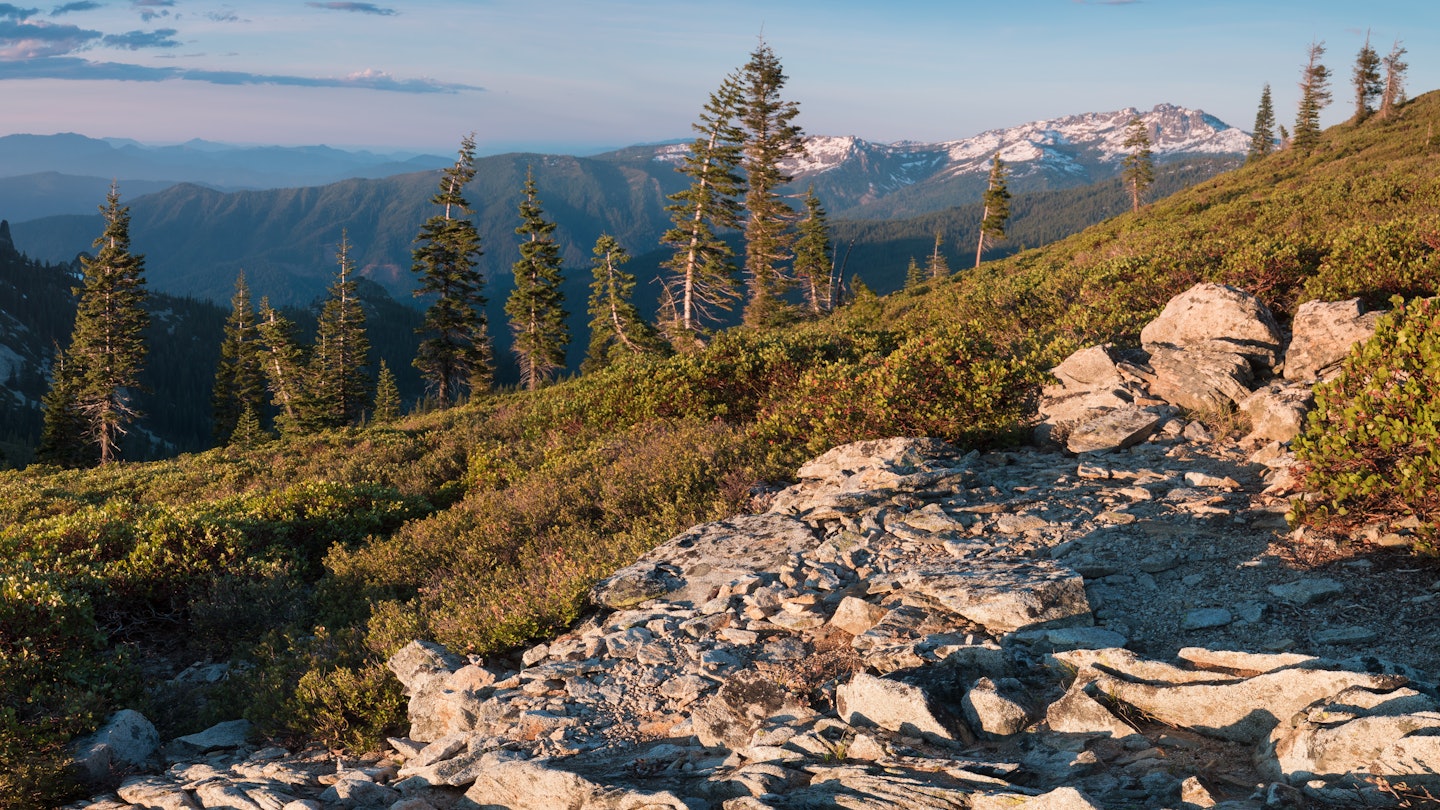
Snow-capped peaks and sunshine in Castle Crags State Park. Michal Balada/Shutterstock
Come to California for the beaches, sunshine and tacos; stay for the kind of natural wonders that dreams are made of.
As the third-largest state in the union with the highest population, the most national parks (nine!) and the longest coastline in the continental USA, the Golden State offers small-town getaways, snowy adventures, fine food and wine, Indigenous culture and unique natural encounters. For travelers looking for all of this and more, these are some of the best things to do in California.
Northern California
There's more to Northern California than just Silicon Valley and the Golden Gate Bridge (though those are also awesome). These are some of the fun adventures you can have in this stunning part of the state.
1. Seek winter adventures in the mountains
Contrary to popular belief, California does have seasons and, come winter, it also has plenty of mountainsides to shred and peaks to play on. Climbing to 14,179ft in the far north of the state, Mt Shasta is a playground for cross-country skiing, night skiing and snow tubing from mid-December to April.
In nearby Castle Crags State Park, you can find 28 miles of hiking trails and incredible views of the eponymous granite spires that jut up above the treeline. Meanwhile, inland from Fresno in the Eastern Sierras, Mammoth Mountain receives an average of 30ft of snow each season. It’s a great place to snowboard, snowshoe or go dog-sledding.
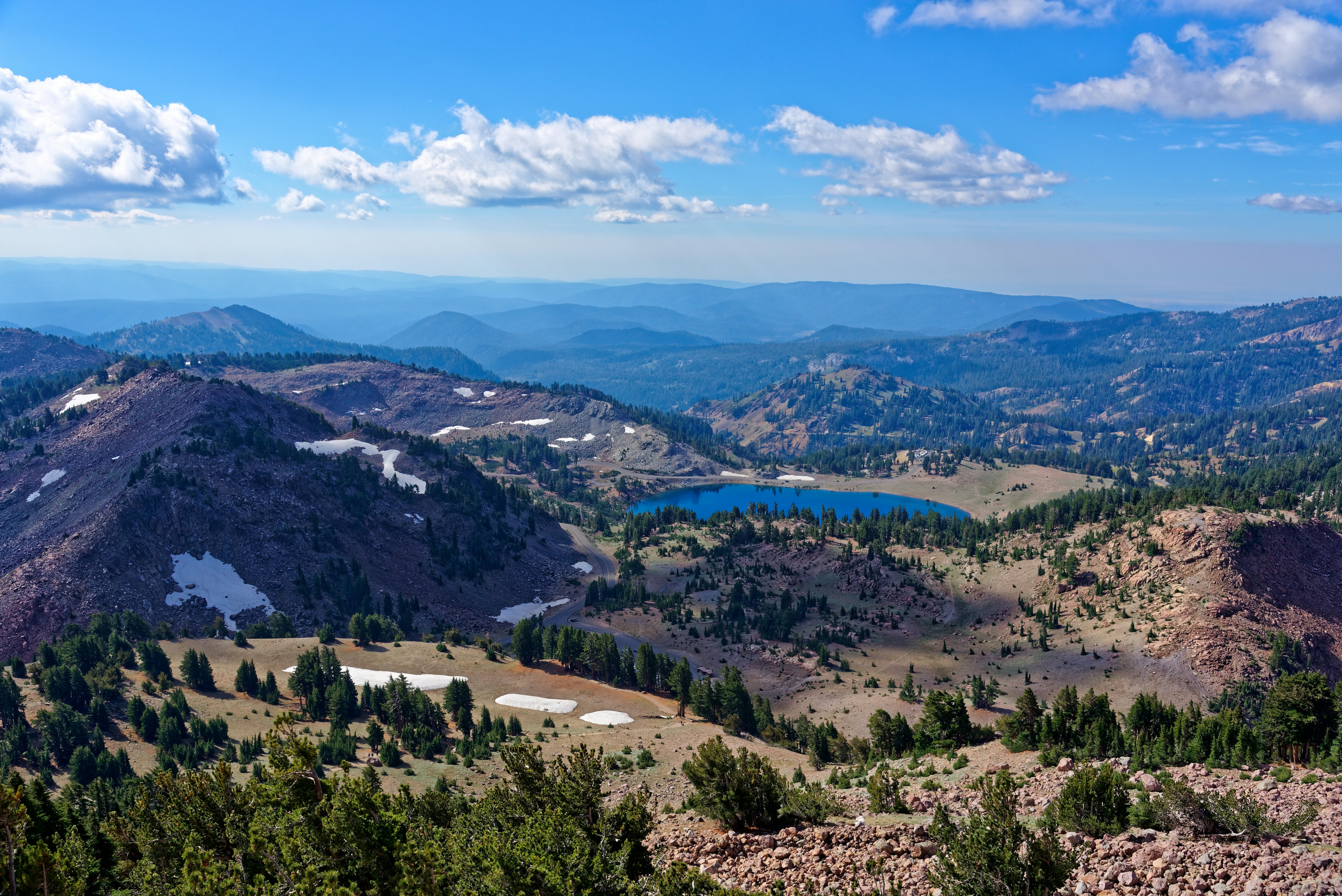
2. Reconnect with nature in various national parks
California has the most national parks of any state, with highlights including Kings Canyon and Lassen Volcanic National Park. Kings Canyon is where you can find Redwood Canyon, which contains the largest remaining grove of sequoias in the world. You can also go spelunking inside the chilly Boyden Cavern, which offers daily guided tours within the cave that stays at 55°F year-round.
Lassen Volcanic National Park features the world’s largest plug dome volcano, which develops from the slow flow of lava over time. It’s also an ideal spot for clear views of the night sky because it’s so far away from major cities and their light pollution. The entire park is home to multiple lakes that are great for boating or fishing during the warmer months, while you can go sledding, skiing or snowshoeing around Manzanita Lake in the winter.
Planning tip: If you time your visit right, you can visit one of these parks for nothing, as the National Park Service hosts seven free days a year. Be sure to get there early – the gratis admission attracts quite the crowd.
3. Dine at Michelin-star restaurants
A multicolored array of fresh produce is grown in California – and prime local meats and fresh seafood bring superior flavors to the state’s world-renowned restaurant scene. As of 2025, that scene includes 87 Michelin-starred restaurants – seven of them have the coveted three-star rating.
The venerable French Laundry in Yountville and SingleThread Farm in Healdsburg are both known for having their own farms that visitors can explore. The other three-star restaurants are all in San Francisco. Atelier Crenn offers beautiful displays of molecular gastronomy, while Quince focuses on maintaining the purity of its exceptional ingredients. And Benu elevates Asian fusion cuisine to new levels.
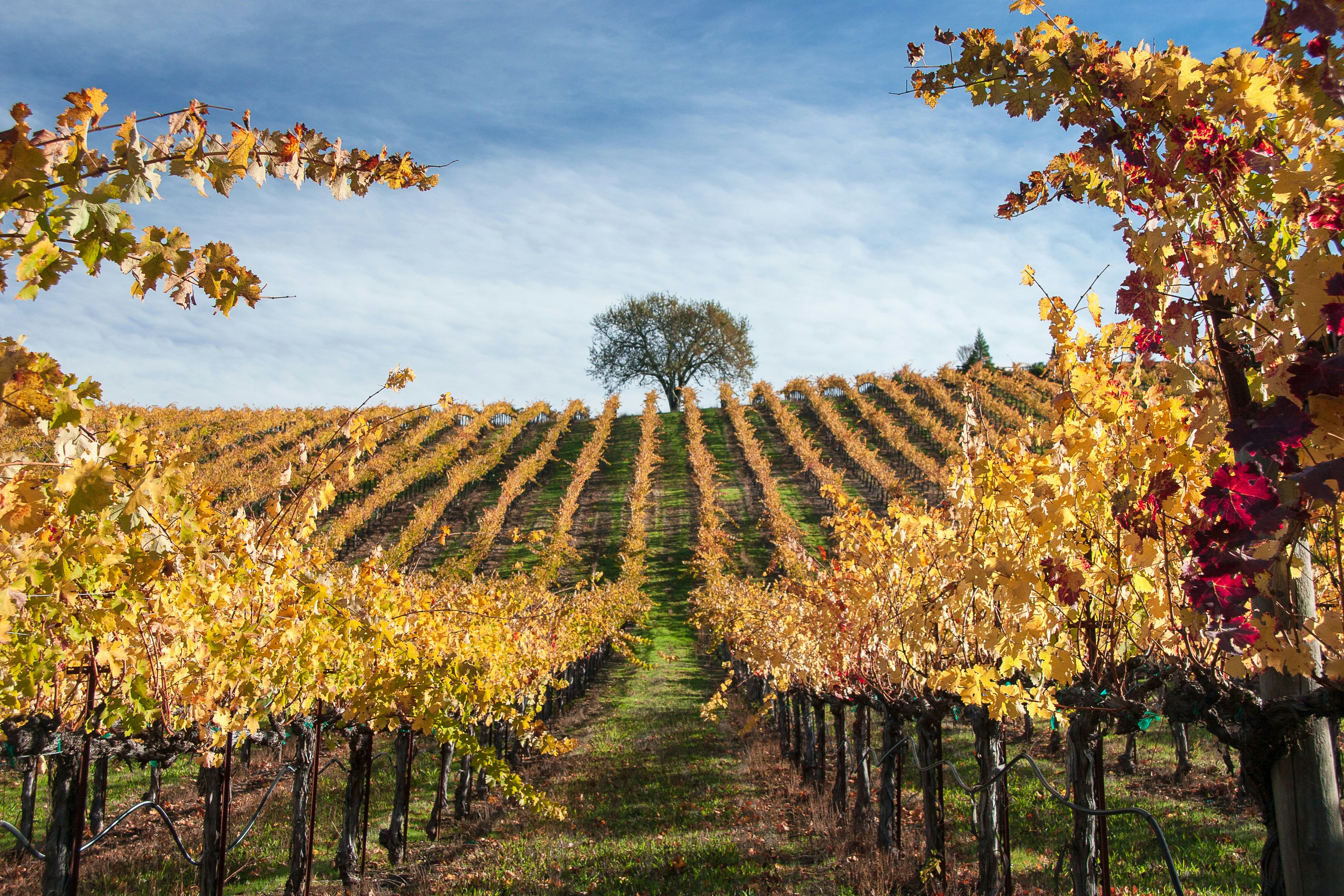
4. Always add a glass of Northern California wine
Most travelers instantly link Californian wine to the famous Napa Valley – but the state is home to more than 154 recognized American Viticultural Areas (AVAs) and 4200 bonded wineries according to the California Wine Institute.
Beyond Napa, start your oenophile adventure in Mendocino County’s Anderson Valley, one of North America’s top pinot producing regions, and Sonoma County, which is home to prize-winning producers of chardonnay, cabernet sauvignon, sauvignon blanc and cool-climate syrah. You can visit the big-name vineyards like Kendall Jackson and Rodney Strong, or you can find more boutique producers. Aperture Cellars in Healdsburg crafts Bordeaux-style wines, while Marine Layer focuses on small-batch wines that embrace the cooler climate.
Lodi in the Central Valley is primarily known for its zinfandels, but the region is fast emerging as a top destination for less familiar grape varieties such as albariño and vermentino – check out Acquiesce and Klinker Brick Winery for some great examples of these styles.
5. Learn about Northern California’s Indigenous cultures
Innovative cultural centers, sacred sites, learning spaces and hands-on arts-and-crafts experiences are just some of the many ways visitors can learn more about the 100-plus federally recognized tribes in Northern California.
Near Eureka on the North Coast, Fort Humboldt State Historic Park has exhibits that explore how miners and settlers interacted with many different Native American tribes in California, including the Karuk, Hupa, Wiyot, Yuki and Shasta peoples.
After biking the American River Parkway (Jedediah Smith Memorial Trail) in the Sacramento area, duck into the Folsom History Museum to view exhibits about the area’s Indigenous peoples and Gold Rush history.

6. Answer the call of the wild
A large number of animals call California home. In fact, of the 770 native wildlife species, more than 40 of them are found nowhere else in the world. With enough patience, you can catch them in the wild at parks, beaches, forests and occasionally suburban streets. For a quick creature fix, head to top-notch aquariums like Monterey Bay Aquarium, Aquarium of the Bay or Steinhart Aquarium in San Francisco.
Some animals’ Golden State stays are more temporary. The annual monarch butterfly migration begins in November and runs through March, bringing vast numbers of these distinctive butterflies to the Central Coast, including Pacific Grove’s Monarch Grove Sanctuary in Monterey County.
The annual whale migration is another good reason to visit California from December to April, when some 20,000 gray whales pass through as they travel between Alaska and Mexico. Humpback whales, blue whales, orcas and other species are spotted year-round. While Monterey Bay is the most famous whale-watching destination in California, they are seen with regularity near Mendocino and the Marin County coast.
Planning tip: Every year millions of birds migrate north and south along the Pacific Flyway, which extends from Alaska to Patagonia. Birders can catch them at key rest stops on the avian highway such as the Sacramento Valley.
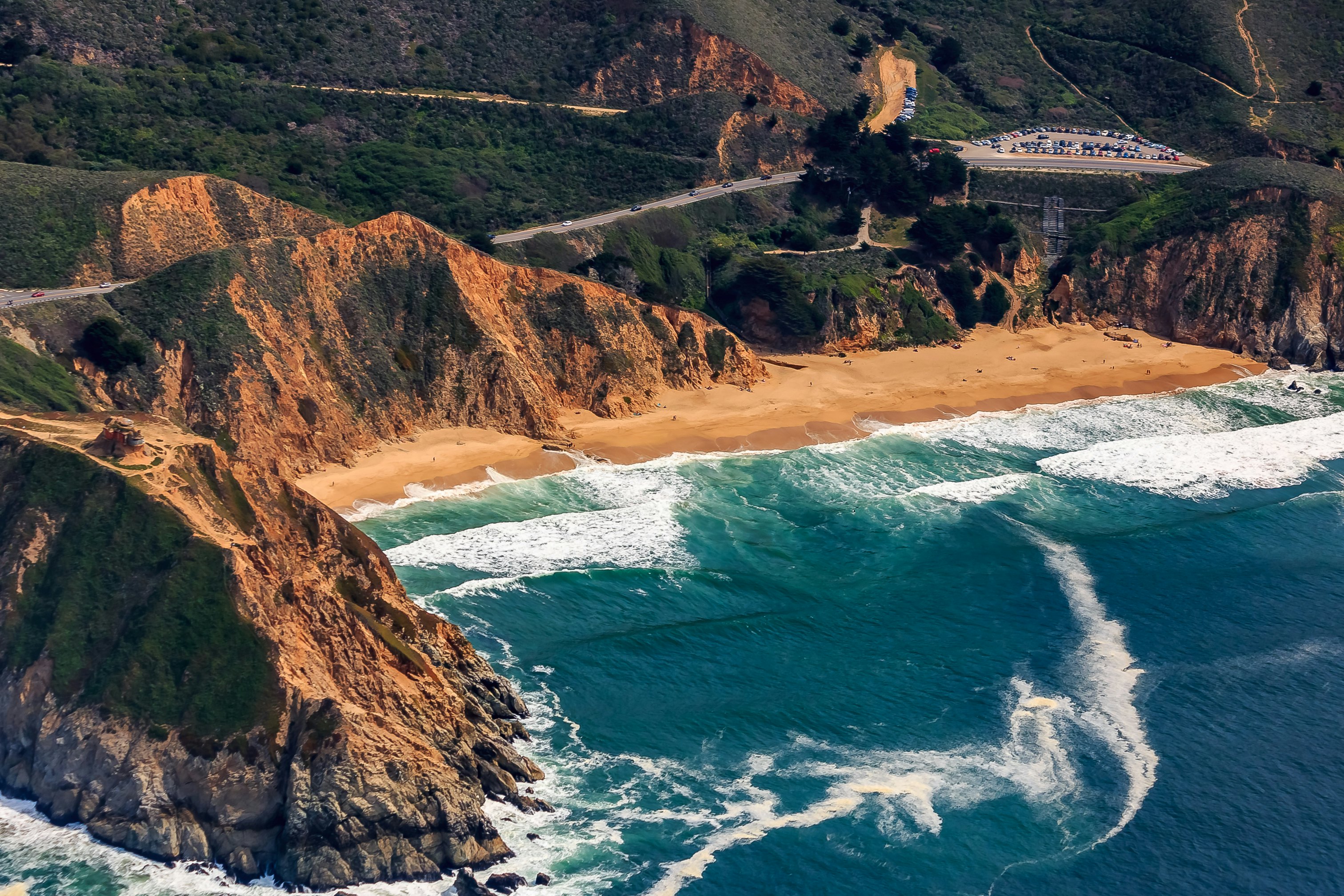
7. Don’t neglect Northern California’s beaches
You can certainly find sun and sand in Northern California. Explore the isolated coves surrounded by stunning bluffs at Gray Whale Cove State Beach, where you can spot gray whales migrating close to shore. For more whale-watching (as well as seal-watching), head to MacKerricher State Park for its variety of habitats like beaches, bluffs, dunes, wetlands and forests.
Just below MacKerricher State Park and next to Fort Bragg, you can see a testament to the power of nature. What was once a dump site for glass, appliances and vehicles has had its shore pounded by ocean waves over the decades to become Glass Beach. The beach itself is covered by small pieces of smoothed glass that sparkle in the sunlight.
Or you can spot the partially submerged World War I concrete ship offshore at Seacliff State Beach. While the ship itself is closed to the public, the beach remains a popular swimming spot.
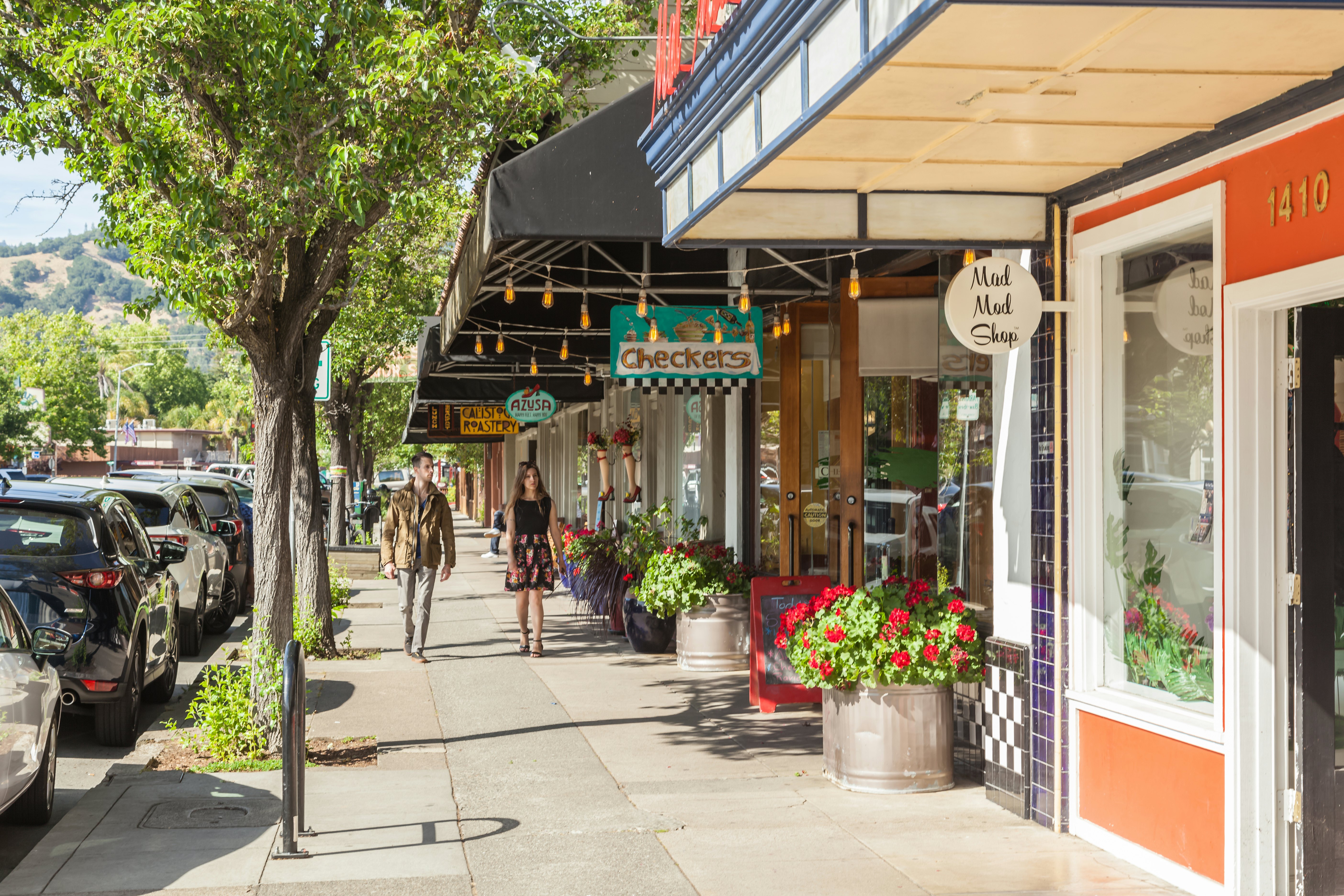
8. Be charmed by Northern California’s small towns
Small towns offer the best of the US – and California is no exception. Chico is a vibrant college town surrounded by farming communities that supply the local restaurants. The town’s Bidwell Park is a great spot for splashing around in swimming holes, riding horses, fishing and hiking. Tours of the highly regarded Sierra Nevada Brewing Company end with beer tastings and you can admire the work of local artists at the Museum of Northern California Art.
Located in the Trinity Mountains a few hours north of Redding, Dunsmuir is a well-loved fly-fishing destination and a notable stop for US railroad history buffs. Calistoga is the place for mud baths and soothing mineral water soaks at spa resorts – some are clothing optional.
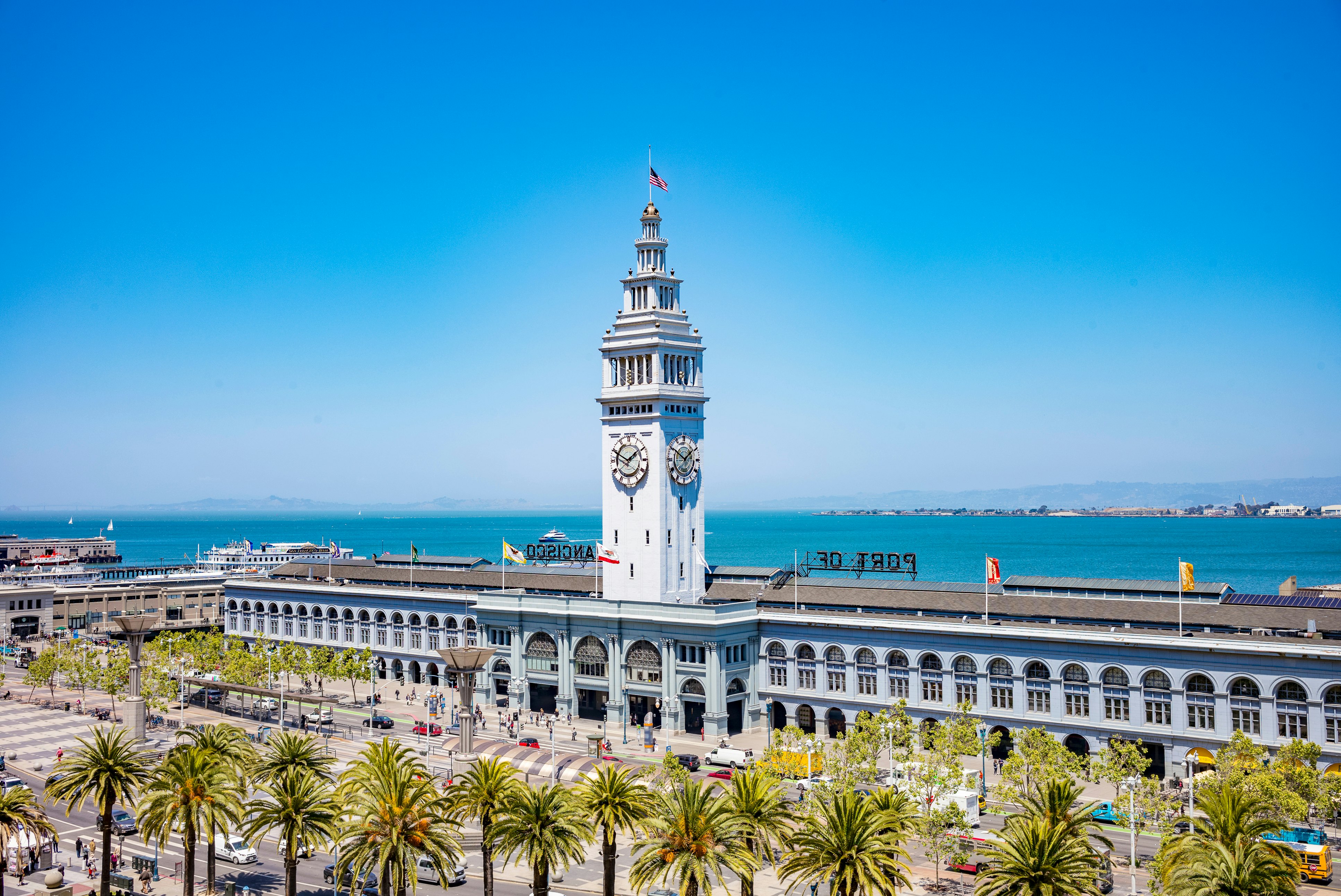
9. Shop for souvenirs made by local artisans
Locally made homewares, foodstuffs, apparel and accessories showcase the creativity of Californians and make great souvenirs. Businesswoman Ayesha Curry started Sweet July in Oakland to highlight Black-owned businesses and Bay Area makers; shop for kitchenware, jewelry and self-care products from producers such as Johanna Howard Home, 54 Thrones, and ByChari.
Across the bay in San Francisco, the Ferry Building is a treasure trove of edible souvenirs like Dandelion Chocolate, Far West Fungi, Red Bay Coffee and Stonehouse Olive Oil. Pick up mugs and dishes to serve all your goodies at Heath Ceramics, one of the last mid-century American potteries still firing.
Southern California
Southern California is jam packed with stunning experiences, from its natural wonders like the mountains and deserts to immersive cultural experiences in its diverse cities and towns. This is what you can do sunny SoCal.

10. Get elevated on Southern California’s mountains
Northern California doesn’t have the monopoly on mountains. In Southern California, go snowboarding in the state’s freestyle capital, Big Bear, where you can also bobsled on an alpine slide, pop wheelies at a mountain bike park and visit one of only two alpine zoos in America. If you’d rather stay warm, Palomar Mountain offers scenic seasonal drives through cedar, pine and fir trees.
The Palm Springs Aerial Tramway, the world’s largest rotating tram car, gives riders 360° views of the desert as it climbs almost 3 miles to the top of Mt San Jacinto where winter camping sites, hiking trails and prime spots for family snowball fights await.
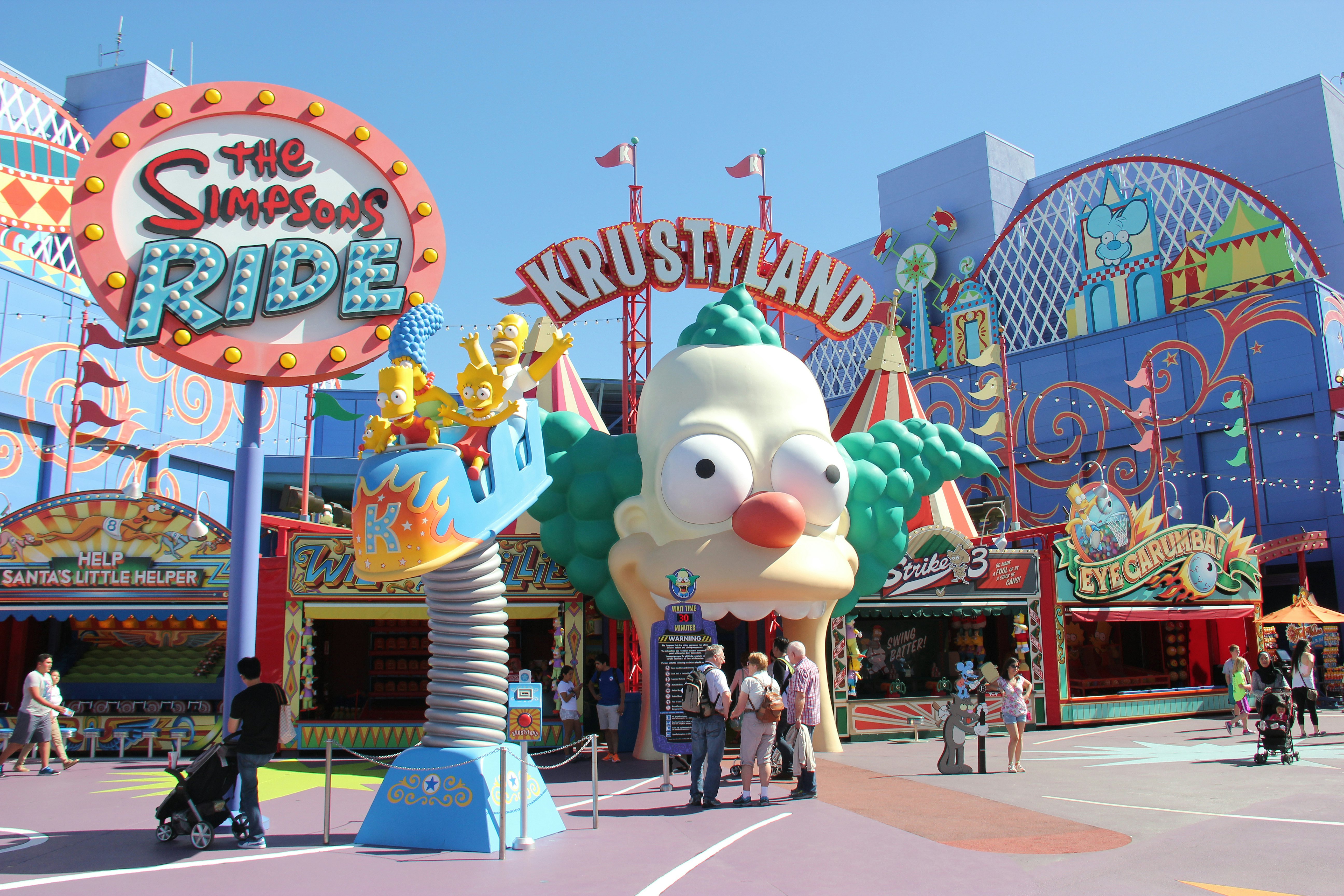
11. Get your thrills at numerous theme parks
There are several factors to consider before choosing which theme park to visit. Forever family-friendly Disneyland still has 13 of the original rides as well as newer amusements in Star Wars: Galaxy’s Edge. California Adventure Park joined the roster in 2001 and now has Marvel and Pixar-themed attractions.
If you prefer Harry Potter, Minions, the Simpsons clan or Super Mario Brothers, hit Universal Studios Hollywood in Universal City. It has roller coasters and live shows but also offers tram tours of a working movie studio that includes set pieces like the Psycho house and an animatronic Jaws, plus rides from newer Universal franchises like King Kong and Fast & Furious.
Bigger, faster and scarier coasters can be found at Six Flags Magic Mountain in Valencia with rides like Apocalypse and Roaring Rapids. Or go old-school at Knott’s Berry Farm in Buena Park with rollercoasters like GhostRider and Silver Bullet and splash around in their Soak City water park.
12. Chill out with a glass of Southern California wine
The warmer climes of Southern California yield some terrific wines – South Coast Winery in Temecula has its own restaurant and spa, and they even let you participate in Grape Stomp sessions during September (which is California Wine Month).
Closer to the coast in Paso Robles, Tin City is a one-stop shop for tasting rooms like Desparada Wines, known for its French- and Italian-influenced reds, whites and blends. Santa Barbara has a bustling Urban Wine Trail that lets you enjoy a free tasting at each winery along the trail.
The Santa Ynez Valley, the setting for the Oscar-winning film Sideways, is another vineyard-dotted region gaining popularity for hosting fabulous wine country weekend getaways and praise for its pours.

13. Pair that wine with great Southern California eats
Whether you’re craving something quick and delicious from a food truck, organic vegan dishes, a high-end fine dining moment or traditional delicacies from just about any country on the map, chances are someone is whipping it up right now in the big cities and small towns across Southern California.
Tourists can grab French dip sandwiches in downtown LA at the place credited with creating them: Philippe The Original. Other SoCal-created foods include the taquito, which was first made at El Indio in San Diego, as well as the cheeseburger. If you want a truly spectacular burger, head to The Stonehouse in Santa Barbara. Their grilled natural Angus patty uses local ingredients to make a truly elevated experience.
If you’re a true taco fiend, SoCal has you covered. Sancho’s Tacos has multiple locations around Orange County and fantastic shrimp tacos (plus the Sawed Off breakfast burrito that’s not to be missed). The Avenue 26 Tacos food truck goes to two locations – Eagle Rock and Little Tokyo – and serves up delectably messy tacos.
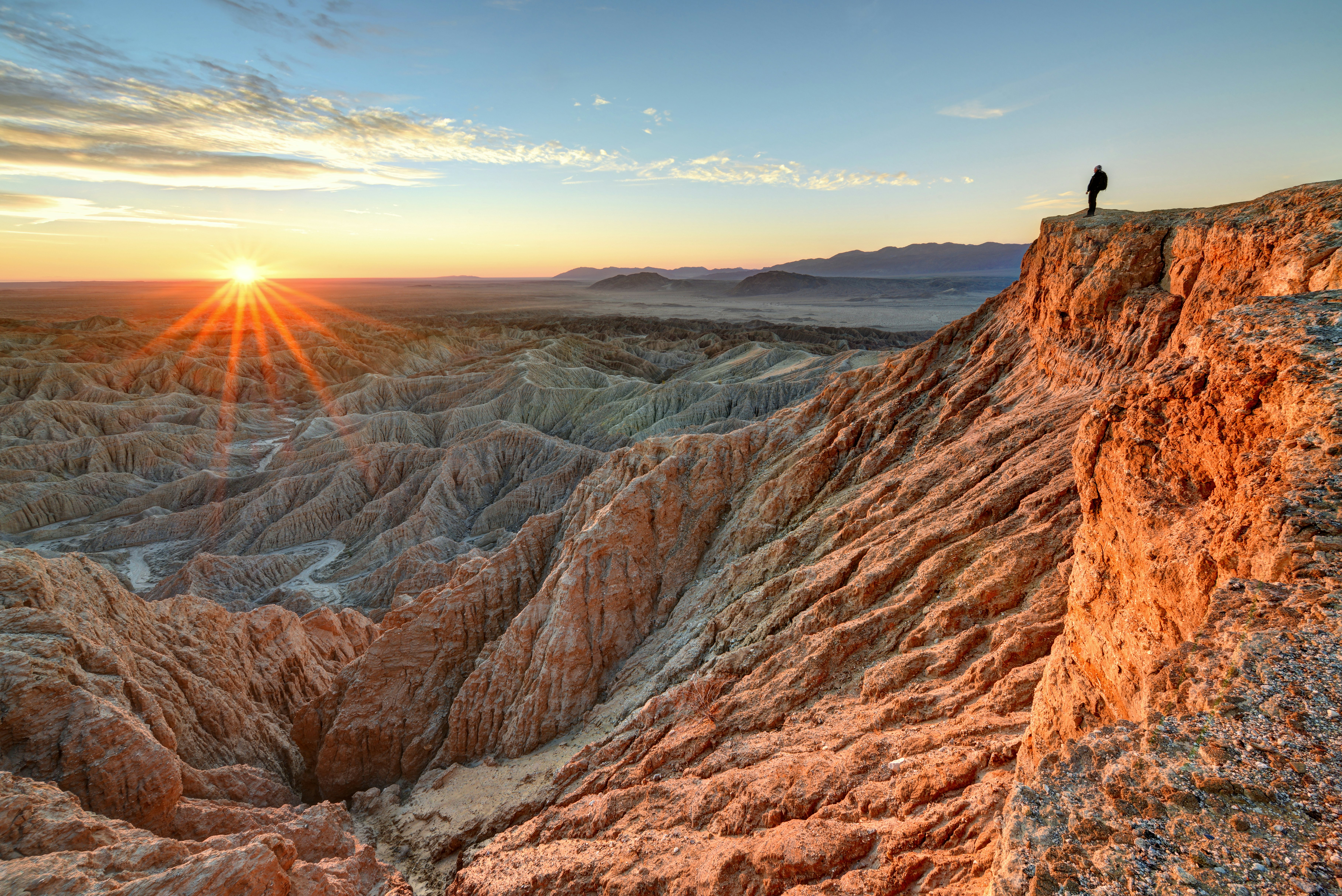
14. Learn more about Southern California’s Indigenous cultures
Chumash Painted Cave State Historic Park near Santa Barbara features rock art thought to have been painted by the Chumash people in the 1600s and earlier. Further up the highway, the Santa Ynez Chumash Museum and Cultural Center opened in 2024 and features an amphitheater and living village. The architect behind the project, Johnpaul Jones, also worked on the National Museum of the American Indian in Washington, DC.
Pictographs and petroglyphs from the Kumeyaay tribe can be found in Anza-Borrego Desert State Park, and Tomo-Kahni State Historic Park also has rock art by the Kawaiisu peoples.
The Antelope Valley Indian Museum focuses on Great Basin Indigenous cultures, as the region was a major prehistoric trade corridor between the tribes of the Southwest, California and the Great Basin. The newest visitor center at Joshua Tree National Park, found in Twentynine Palms, features rotating exhibits that highlight the area’s Native American history and Indigenous communities.
In the Coachella Valley, the Agua Caliente Band of Cahuilla Indians opened a museum in 2023 detailing their culture and history in downtown Palm Springs. The Cultural Plaza also contains the Spa at Séc-he, a lavish, sprawling self-care temple powered by mineral-rich waters from a nearby hot spring the Cahuilla have used for healing and spiritual purposes for centuries.
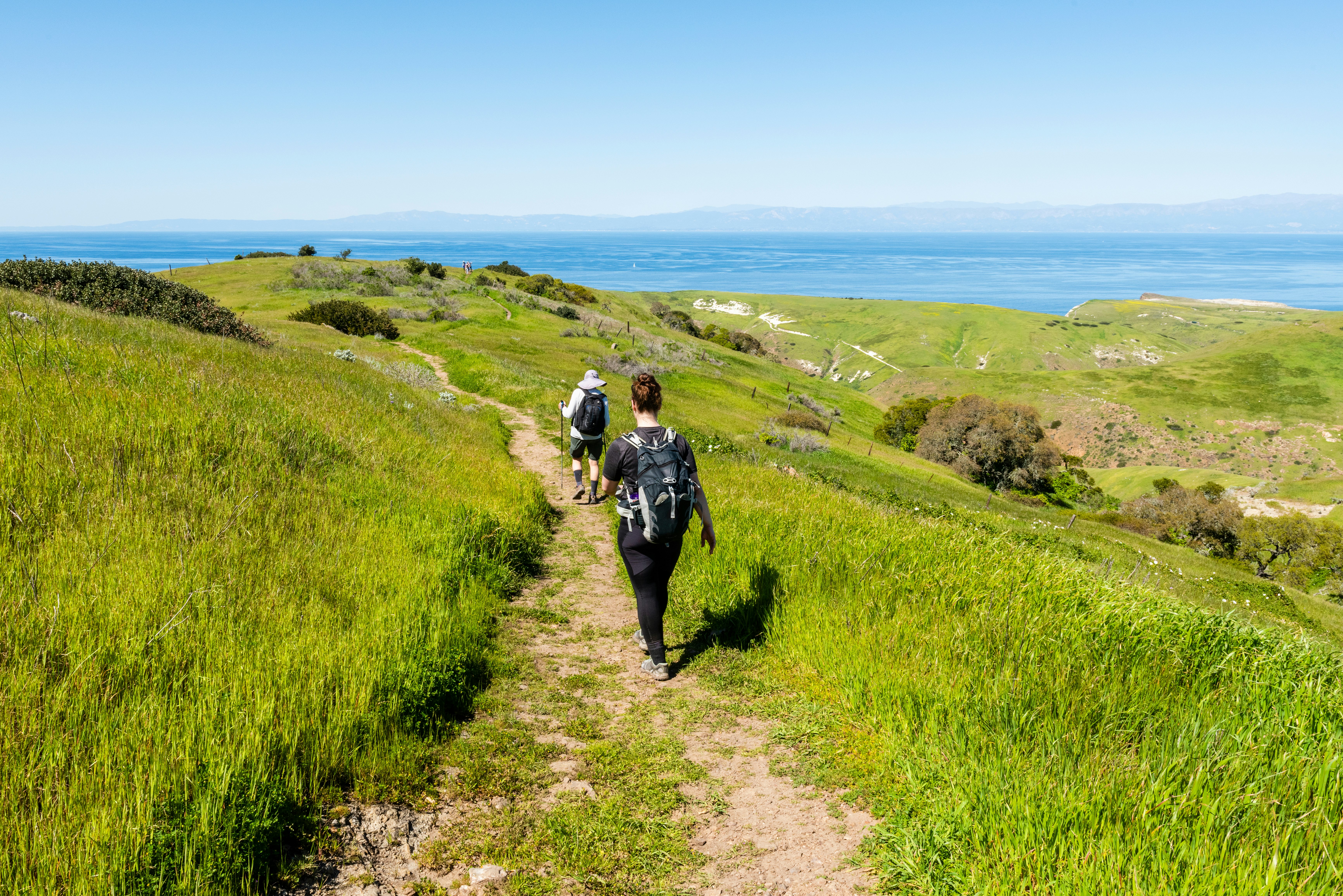
15. Explore even more national parks
Southern California’s national parks offer a different type of environmental splendor than Northern California’s. Channel Islands National Park has its own marine sanctuary that protects the water around the park itself. You can go diving or snorkeling between the islands to see the incredible underwater wildlife.
Death Valley National Park holds the distinction of being the hottest, driest, and lowest national park, but it also offers up some beautiful sights. Take the 9-mile, one-way road called Artist’s Drive in the late afternoon to catch vibrantly colored sedimentary and volcanic rock formations, or walk along the rim of the 600ft-deep Ubehebe Crater, created by a powerful volcanic steam explosion.
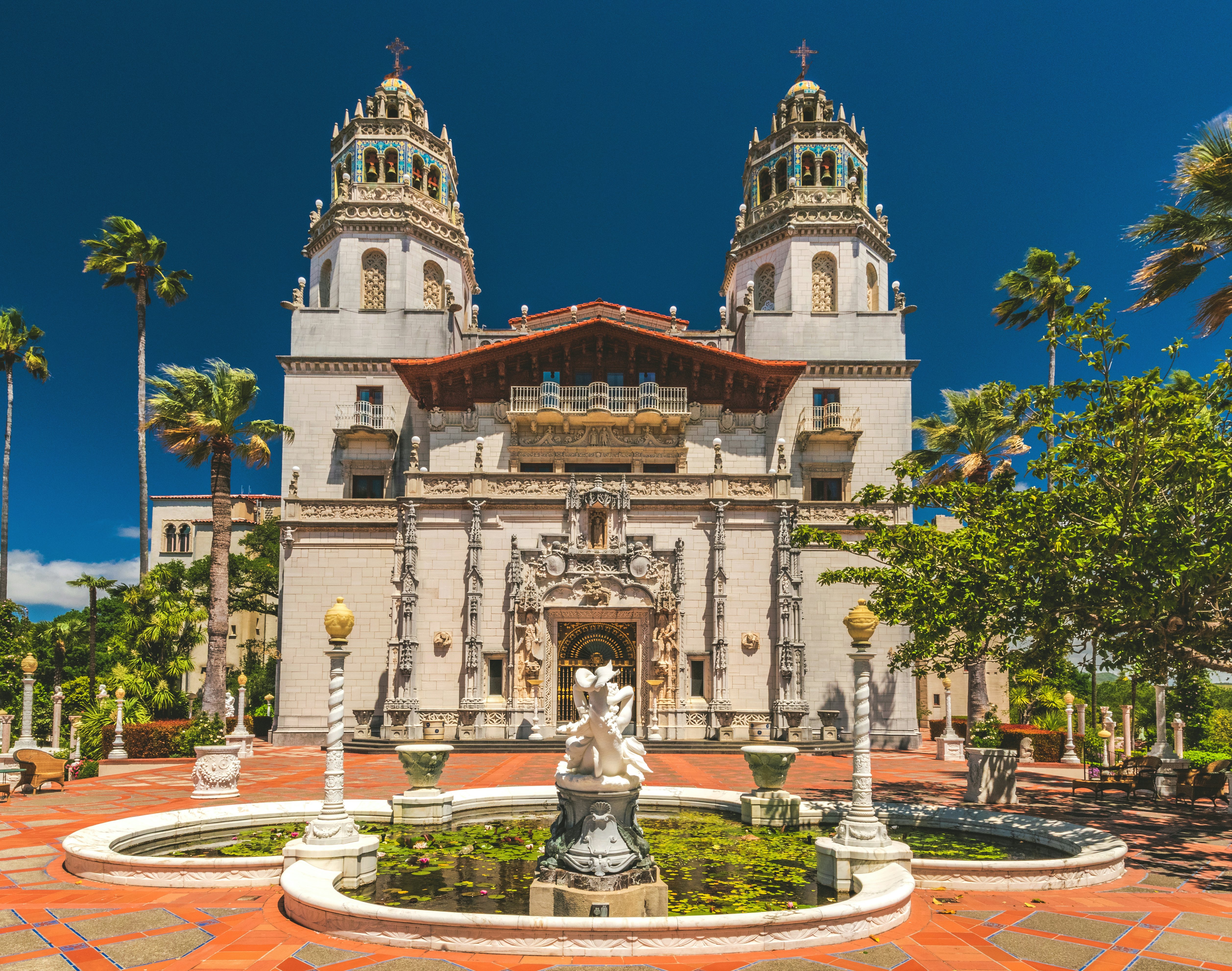
16. Embrace Southern California’s small-town cultural offerings
Southern California has its cute small towns, too. Along the Central Coast, Cambria is an artsy seaside town known for cozy inns, Linn’s olallieberry pies and an October scarecrow festival. It’s also the setting for Hearst Castle, the lavish former home of William Randolph Hearst and a must-visit for anyone driving the Pacific Coast Highway.
Easily accessible from Los Angeles, Ojai attracts hippies, hipsters and wellness seekers with day spas, wineries and the world’s largest outdoor bookstore (Bart’s). Here you can also adore the pink sunsets alongside revamped motor hotels. The mountain town of Idyllwild puts 30,000 acres of the San Jacinto Wilderness within reach, as well as art galleries, outdoor rock climbing and an annual jazz festival.
17. Wrap up your SoCal visit with some locally made gifts
In Santa Ana, Alta Baja Market at 4th Street Market celebrates cuisine from both sides of the California-Mexico border. It's a good place to find wines from the emerging Valle de Guadalupe region in Baja California.
In downtown Los Angeles, The Row houses an array of boutiques selling swimwear (Coast by Coast), vintage clothes (General Store) and dog goods (Pretty Good Boy), as well as flowers, produce and more wine. Meanwhile, candles, art, leather goods, ceramics and accessories can be found at the Mojave Flea Trading Posts in Palm Springs and Yucca Valley.
For a unique retail experience in SoCal, try spots like Junk Girls in San Luis Obispo, where the owners are assemblage artists who take old, discarded objects and give them new lives as furniture, art and jewelry. If you have a sweet tooth, stop by Bennett’s Honey Farm in Fillmore – at this 100% solar-powered working beehive, you can sample raw and unfiltered honey or shop their bee-focused products like candles, lotions and lip balms.
Take your United States (USA) trip with Lonely Planet Journeys
Time to book that trip to United States (USA)
Lonely Planet Journeys takes you there with fully customizable trips to top destinations–all crafted by our local experts.
